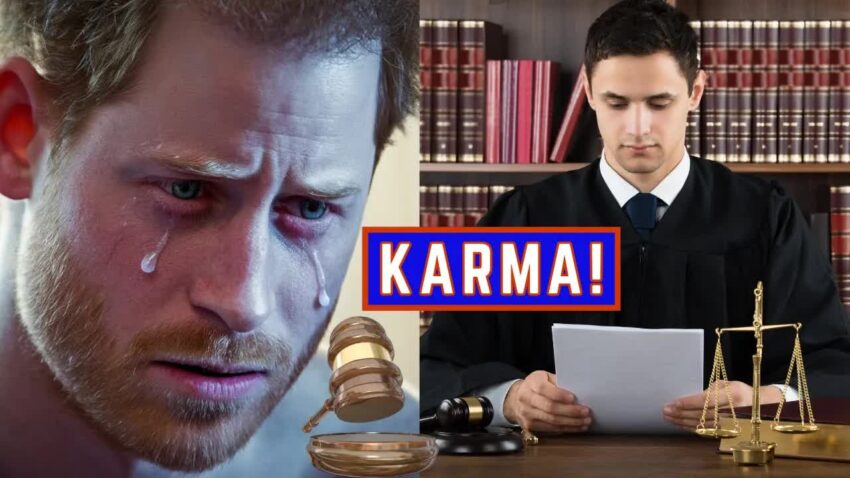In a dramatic turn of events, the ongoing saga surrounding Prince Harry’s U.S. visa has taken center stage, igniting a fierce debate on the balance between privacy and public interest.
The U.S. government has stood firm in its commitment to keep the Duke of Sussex’s immigration records confidential, despite challenges from a conservative think tank that questions the legitimacy of his visa status.
The Heritage Foundation, which initiated this legal battle, has raised eyebrows over whether Prince Harry received preferential treatment during the visa application process.
This controversy gained momentum following revelations from Harry’s memoir, “Spare,” where he openly discussed his past use of illegal substances, including cocaine and psychedelics.
Such admissions usually complicate the visa approval process, leading critics to speculate whether his royal status influenced the Department of Homeland Security’s (DHS) decision.
At the core of the Heritage Foundation’s lawsuit is a demand for transparency.
They are pushing for the release of documents related to Prince Harry’s visa application, aiming to uncover whether he was honest in his disclosures and whether the DHS adhered to standard procedures.
The think tank argues that the public deserves to know if any special exemptions were made for the high-profile royal.
Harry’s memoir provided a candid look into his struggles with grief and identity, shedding light on his experiences with drugs as a means of coping with the loss of his mother, Princess Diana.
While many applauded his openness about mental health, it simultaneously raised questions regarding his immigration status under U.S. law, which can be strict about drug use.
In September, a federal court ruled in favor of the government, emphasizing that Prince Harry’s right to privacy outweighed the public’s interest in the case.
Judge Carl J. Nichols conducted a closed review of the Duke’s immigration records and found no wrongdoing by the DHS.
The ruling effectively halted the Heritage Foundation’s efforts at that time, but the think tank has signaled plans to appeal.
Mike Howell, the executive director of Heritage’s Oversight Project, expressed frustration with the court’s decision.
He pointed to redacted documents as a sign that crucial information was being concealed from the public.
Howell suggested that the lack of transparency only deepens suspicions regarding the visa approval process.
The Heritage Foundation’s stance revolves around the belief that the public has a right to scrutinize how immigration laws are enforced, especially concerning influential figures like Prince Harry.
They argue that the case is about ensuring accountability within the government and preventing any potential favoritism.
On the flip side, the Biden administration has consistently defended its handling of Prince Harry’s visa application, asserting that their actions were entirely legitimate.
In recent filings, government lawyers reiterated that the evidence presented in court countered any allegations of misconduct, stressing that sharing more details could infringe upon Harry’s privacy rights.
This legal tussle has sparked broader discussions about the delicate balance between transparency and privacy, particularly for public figures.
Critics contend that individuals like Prince Harry should not escape scrutiny, especially when their actions might affect ordinary citizens.
Conversely, privacy advocates warn that compromising such sensitive information could set a dangerous precedent.
For Prince Harry, this case represents yet another chapter in his tumultuous relationship with public perception.
Since stepping back from royal duties and relocating to California, he has faced relentless media scrutiny, often accused of seeking privacy while simultaneously engaging with the public eye.
As the Heritage Foundation gears up for its appeal, the outcome remains uncertain.
Any future rulings could reshape how privacy and public interest are weighed in immigration matters, especially involving celebrities.
The Biden administration appears ready to defend its position vigorously, indicating that the matter is far from resolved.
While Prince Harry has chosen to remain silent on the legal proceedings, focusing instead on his charitable endeavors, the controversy underscores the complexities of navigating life as a global celebrity.
Ultimately, this case serves as a reminder of the intricate interplay between fame, privilege, and accountability in our society.
As the drama unfolds, it continues to captivate audiences, raising essential questions about who gets to maintain their privacy in an era of intense scrutiny.
